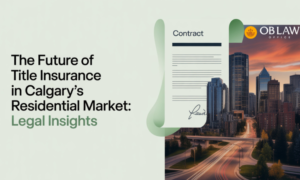How To Repay The Mortgage Before Retirement?
Everyone dreams of a relaxing retirement phase with a debt-free lifestyle. It could be about making the much-anticipated holiday or visiting a therapeutic place. However, around 80% of individuals are stuck with mortgage payments.
According to the Bank of England “in the last 3 years more than a million mortgages were issued. Maximum of them run even after the state pension age.” It is indeed disturbing statistics questioning home ownership struggles. With houses becoming unaffordable and mortgage rates rising, individuals choose a longer repayment term. It reduces the monthly payment and helps them effort towards buying a home.
The very arrangement is okay now. However, what after retirement? Would you use your pension pot to pay the mortgage? It is the greatest blunder to commit. If you fail, your further generation must pay the dues. You would not like to leave your kids with whopping debt.
So, what should you do?
You can still crack it if it is below 30. The blog lists the best ways to repay the mortgage before the retirement age. It is all about evaluating the possibilities and working on it.
6 Strategies that May Help Settle Mortgage Before Retirement
Paying your mortgage before the deadline helps you save a significant sum. Additionally, eliminating the biggest lump sum from your monthly bills is relieving. Instead, you can save that sum towards something more substantial.
One of the best ways to clear the dues early is by making overpayments. Identify whether your mortgage provider allows one. If yes, paying a higher monthly instalment reduces your liabilities and loan repayment timeline. You can use an overpayment mortgage calculator to learn more. Here are other strategies to settle mortgage payments before retirement:
1) Use a part of retirement income
You can start your retirement fund as soon as you get a stable job. Starting one at 21 helps you save a whopping amount. So, if you are 40 and started one at 20, you may have good retirement savings. Moreover, you can get a tax-free lump sum from retirement contributions.
Identify your current retirement account value. Have you saved more than you need for your post-retirement goals? Re-analyse and ensure some cash flexibility before calculating. You cannot skip emergency expenses. Later, if you have enough, dedicate a portion to mortgage payments. It may help you pay at least 2-5 months of mortgage payments.
2) Reduce your monthly expenses
It is the basic way to increase your final savings after paying the bills. Identify and list the items you spend on monthly. It may include rent, utility bills, credit cards, car loan payments, etc. These are critical payments to make.
However, consider unnecessary expenses like ordering food, booking movie tickets, or attending concerts. Eliminate such expenses for a while. Instead, aim to maximise your monthly savings. Spend only on the needful things. Sometimes, emergency expenses like- short-circuit affect the savings.
Avoid tapping the hard-earned lump sum. Instead, check unsecured loans to finance emergencies. It will help you counter the need the same day. It will help you avoid spending unnecessarily and balance finances well. The loan does not require collateral to qualify. Instead, individuals with stable credit and finances get instant quotes. Check one for your short-term money requirements.
- Remortgage the current mortgage agreement.
If you are on a fixed mortgage deal, check remortgaging possibilities. It is an ideal option if you still have a year or 2 on mortgage clearance. Remortgaging helps you benefit from the low interest rates.
Check the current mortgage rates. Is it lower than what you have got? Great. Remortgaging means a new mortgage agreement. It hosts fresh payment terms and guidelines. Thus, you must follow this agreement, not the previous one.
Re-mortgaging to lower interest rates reduces total payments. It shrinks the monthly instalment. This means you will pay less than your previous agreement. Moreover, you can even reduce the timeline to repay the mortgage agreement.
4) Use windfall gains towards payments
No matter how instinctual it feels- don’t use the lottery to fund the international trip. It may be your most-anticipated dream. However, clearing the mortgage is more important than funding the trip. Clearing a mortgage now grants you the flexibility to relish the retirement years. Identify the amount you can realistically pay towards the mortgage. Contact the provider to understand the maximum monthly payment you can make.
Paying more than that could lead to an overpayment penalty. It may instead affect your mortgage clearance goals. Thus, ensuring clarity on the amount you can pay is essential. Next, pay that small amount monthly. It is generally higher than the earlier agreement. You can either use the whole lottery or a portion of it to cover the payments.
5) Use side earnings to fix the amount needed
You may not have the time to understand savings from income streams. It is high time to analyse that. Check multiple income sources like – rent, part-time income, dividends, etc. Calculate how much you save monthly from these. It is separate from your primary income or stable employment. If you can save a sound amount, don’t waste that.
Instead, use more of it to settle the mortgage bill. Before that, analyse existing debts and upcoming payments. If saving a lump sum may affect your one-time premium payment, wait. You don’t need to worry. Instead, check the best loans for fair and low credit scores. There are multiple options to finance the needs.
You may even get loans for bad credit without a guarantor requirement. It is ideal for individuals with multiple liabilities and low flexibility. Individuals with stable finances don’t need to provide a guarantor. Use the loan to fund the premium quickly. It prevents you from attracting penalties. Moreover, it helps you remain on top of your financial goals.
6) Switch to bi-weekly payments from monthly ones
Sounds crazy? Well, yes, it is possible to do that. Instead of making monthly payments, try bi-weekly ones. In this, you pay half of the monthly mortgage payment. It means if you pay 20000 as a monthly mortgage payment, you pay only 10000 bi-weekly. You can even increase this to 12000 if you want.
It eventually helps you overpay the monthly payment. However, it is only possible if you have that much income and saving flexibility. Don’t outstretch your budget just to clear your mortgage early. Set boundaries by prioritising critical expenses.
Bottom line
It is one of the best ways to repay the mortgage before retirement. Understand the age at which you want to retire. It should be realistic and should not involve many liabilities. Reducing the debt baggage is the prime aim. Mortgage accounts for the costliest one. Options like remortgaging, overpayments and using windfalls may help. Don’t miss any payment. It affects the progress and makes repayments costly. Thus, repay the dues timely.
Source: freshvoicehub.com














Post Comment